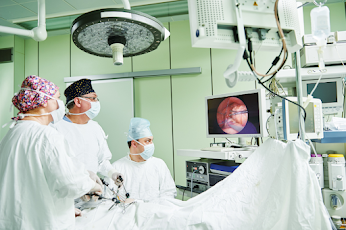A
hernia diagnosis, though overwhelming, can still be managed with the help of
the right surgeon who can make the journey bearable and confident through it
all. From inguinal to umbilical, or any other type of this condition, find and
visit only the best specialists in hernia surgery to make sure you will have a
good recovery. This article will look into the things you need to take into
account while discovering the right one for your situation to be sure that you
have a hernia
surgeon in Jabalpur with a high-quality service ranging from diagnosis to
postoperative recovery.
The Importance of Selecting
the Best Hernia Surgeon
Hernia surgery in Jabalpur
is a hernia medical procedure needing both expertise and superior accuracy. The
most important factor to be considered by you in the choice of a hernia surgeon
will be your treatment experience. Here's why:
1. Expertise Saves
Lives:
Hernia
operation in Jabalpur requires cutting-edge technology and the ability of
the surgeon. The proficiency of the experienced hernia surgeon enables him or
her to conduct some difficult procedures with decent accuracy, thus minimizing
the probability of negative matters and bringing a faster recovery process
after surgery.
2. Personalized Care: All patients are different
and an experienced hernia surgeon knows the significance of careful tailoring
of a surgical plan. They add a personal touch by knowing you best of all that
they know about your personal needs, favorite colors, and medical background to
come up with a unique treatment plan with the highest success rate.
3. Advanced
Techniques: With the constant evolution of hernia surgeries nurturing new
methods and technologies to enhance patient outcomes, the field is growing
fast. A top-notch hernia surgeon is always up-to-date with the latest
advancements in the field as well as well-versed with minimally invasive
procedure options such as laparoscopic and robotic surgeries that promote
speedier recovery times and lessened scarring.
4. Compassionate
Support:
It is natural to feel anxious when you have surgery scheduled, but the
compassionate surgeon will accompany you through the process upholding his
professionalism. The best hernia
surgeon in Jabalpur takes time to explain the procedure in detail, and
answer your concerns and fears; thereby, ensuring you the correct treatment
while ensuring that you are informed, empowered, and reassured.
Choosing the Best
Hernia Surgeon: Key Considerations
When
selecting a hernia surgeon, consider the following factors to make an informed
decision:
1. Credentials and
Experience: Look for a surgeon who is board-certified in laparoscopic hernia
surgery in Jabalpur and has extensive experience performing hernia repairs.
Review their credentials, including their education, training, and track record
of success.
2. Patient Reviews and
Testimonials: Reading reviews and testimonials from previous patients can
offer valuable insights into the surgeon's bedside manner, skill level, and
overall patient satisfaction. Pay attention to feedback regarding
communication, professionalism, and outcomes.
3. Consultation
Experience:
Schedule consultations with potential hernia surgeons to discuss your
condition, treatment options, and any concerns you may have. Pay attention to
how well the surgeon listens to your needs, explains the procedure, and
addresses your questions.
4. Hospital
Affiliation: Consider the hospital or medical center where the surgeon
practices. Choose a facility with a reputation for excellence in surgical care,
state-of-the-art equipment, and comprehensive support services.
5. Gut Instinct: Trust your instincts
when selecting a hernia surgeon. Choose someone who inspires confidence,
instills trust, and demonstrates genuine care and compassion for your
well-being.
Finding
the best hernia
surgeon in Jabalpur is a critical decision that can significantly impact
your health and quality of life. By considering factors such as expertise,
experience, patient-centered care, and personal rapport, you can select a
surgeon who meets your unique needs and ensures the best possible outcome.
Remember, your health is worth investing in, so take the time to choose wisely
and embark on your hernia treatment journey with confidence and optimism.






.jpg)
.jpg)
